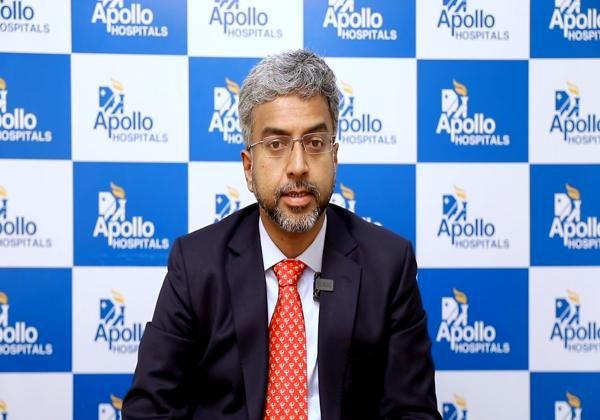A cochlear implant is a small electronic device that helps people with severe hearing loss hear better. It works by bypassing damaged parts of the inner ear and directly sending sound signals to the brain. Many people refer to it as an “ear machine” or “hearing device surgery.”
This treatment is different from regular hearing aids. While hearing aids make sounds louder, cochlear implants send sound signals directly to the hearing nerve. That’s why it’s useful when hearing aids don’t work anymore.
Some people think cochlear implants are only for children. This is not true. Both children and adults can benefit from this surgery if they have profound hearing loss and do not improve with hearing aids.
Doctors usually recommend cochlear implants based on:
This treatment would help many Bangladeshi patients in India regain their hearing and improve their communication. It is often a life-changing decision for families dealing with deafness.
A cochlear implant helps people who cannot hear well, even after using powerful hearing aids. It improves hearing by directly stimulating the hearing nerve, making it easier to understand speech and sounds in daily life.
Hearing loss that may require a cochlear implant can happen due to:
Hearing loss often begins slowly and may be mistaken for minor issues. Common signs include:
Doctors may recommend a cochlear implant in cases like:
The cochlear implant surgery procedure is done under general anaesthesia and usually takes 2 to 4 hours. A small incision is made behind the ear, and the internal device is placed under the skin, with the electrode inserted into the cochlea. Most patients go home the same day or after a short stay. Recovery is quick, and the external device is activated a few weeks later once the area heals.
If you or your loved one shows these signs, Bangla Health Connect can help you connect with top ENT doctors in India for the right advice and support.
.png)
India is a trusted destination for cochlear implant surgery because of its skilled doctors, modern hospitals, and affordable care. Many Bangladeshi families choose India every year for safe and effective hearing treatment.
Here are some key reasons:
India provides world-class ENT care with expert doctors and better technologies, especially for Bangladeshi patients seeking trusted hospitals and expert treatment.
Apollo Hospitals are among the best hospitals for cochlear implant in India, known for their advanced ENT departments and strong support for international patients. These hospitals offer modern technology, experienced ENT surgeons, and comprehensive therapy services after the implant. Many Bangladeshi patients choose Apollo for safe and successful implant surgeries.
Here’s a list of trusted Apollo centres offering cochlear implant surgery in India:

.jpg)





All these hospitals follow global safety guidelines, and many offer packages for surgery and rehabilitation. Bangla Health Connect can help Bangladeshi families connect with the right hospital based on their needs.
The average cochlear implant cost in India ranges from ₹1,50,000 to ₹4,50,000 (approximately $1,800 to $5,400). Prices in India are still much lower compared to countries like the US, UK, or Singapore, making it a more accessible option for many Bangladeshi patients.
The final cost may vary based on multiple factors such as the type of implant, hospital facilities, and duration of post-surgery therapy. Before viewing the cost table below, it's helpful to know what influences these expenses the most.
Note - The costs listed are approximate and may vary based on hospital, location, and patient needs. Consult the healthcare provider for accurate and updated information.
The currency conversion rates in the table above are based on data from July 2025.
For a detailed breakdown and more information on treatment expenses, you can contact Bangla Health Connect for treatment costs at Apollo Hospitals in India.
In a long-term study involving 402 paediatric cochlear implant users, researchers found that 93.2% continued regular use (≥8 hours/day) at 5 years, and 87.7% at 10 years post-implantation.
These findings highlight the long-term usage reliability of cochlear implants in children, particularly when implanted at younger ages.
Success with a cochlear implant does not mean the patient hears perfectly. It means:
Apollo Hospitals uses advanced technology and a multidisciplinary approach to improve implant outcomes:
This structured care model has helped many Bangladeshi patients regain their hearing abilities and achieve successful long-term outcomes.

Dr. Venkat Karthikeyan, Senior ENT Consultant at Apollo Hospitals, Chennai, explains that cochlear implants are a breakthrough solution for children with severe hearing loss, especially during the first four years of life. He explains the process of cochlear implant surgery. A cochlear implant is surgically placed in the ear, with an electrode array inserted into the cochlea. This stimulates the intact auditory nerve and allows sound signals to reach the brain, helping the child develop age-appropriate hearing, speech, and language. Early detection and timely intervention, whether medical, surgical, or device-based, are vital to ensure normal communication development and a better quality of life, while delays in treatment can lead to long-term challenges.
Apollo cochlear implant programmes are among the most advanced in India, offering expert-led care, modern surgical techniques, and comprehensive post-surgical rehabilitation for children and adults with hearing loss.
Choosing Apollo Hospitals through Bangla Health Connect means better care, faster access, and full support during a difficult time. Reach out to Bangla Health Connect to start your treatment journey with peace of mind.
Note: Bangla Health Connect does not provide medical advice of any kind.
✅ Share your reports
✅ Get treatment plans from Apollo Hospitals
✅ Choose the one that fits you
✅ Let us handle the rest
Yes, you will need a medical visa. Bangla Health Connect will support you through the entire visa application process, including invitation letters and documentation.
Yes, patients can usually bring one or two family members. It is best to check the current medical visa rules before travel.
Most patients stay for 2 to 3 weeks, which includes pre-surgery tests, surgery, and the start of speech therapy.
The surgery is done under general anaesthesia. Patients may feel slight discomfort after surgery, but pain is usually manageable with medicines.
Yes, when done early, the implant can significantly improve speech development. Therapy is also important after the surgery to support learning.
Yes. Adults with severe hearing loss can experience improved sound clarity and speech understanding after implantation and regular therapy.
Bring all medical reports, passport, visa, daily medicines, and clothes suitable for your stay. Bangla Health Connect can guide you with a full checklist.

